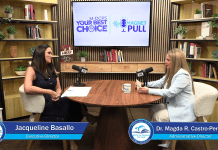
It’s time we do something about Florida’s outdated and discriminatory policies that prevent former felons from being able to participate in civil society.
Right now, an estimated 6.1 million adults in the U.S. are unable to vote due to past felony convictions, according to the Sentencing Project.
And the state with the highest number of disenfranchised voters? You guessed it: Florida.
Roughly 2.5 percent of the country’s adult population is disenfranchised due to past felony convictions, according to the Roosevelt Institute. That’s one in 40 people. In Florida, the rate is more than one in 10.
Florida has nearly 1.7 million former felons unable to vote, according to a report by the Brennan Center for Justice. That’s more disenfranchised voters in one state than there were in the entire country 40 years ago.
For African Americans, the rate is a staggering 20 percent. Many, including ACLU National Political Director Faiz Shakir, have said this style of voter suppression is a holdover from Reconstruction-era legislation whose purpose was to establish a second-class category of citizens.
In 2007, former Gov. Charlie Crist eased the process for most convicted felons seeking to regain civil rights including the right to vote, serve on a jury, run for office and buy a gun. Those reforms were reversed by Gov. Rick Scott in 2011.
People with felony convictions in Florida currently cannot apply to restore their rights until seven years after they complete their sentence, probation and parole. They then must go through a difficult, complicated and inefficient process to reclaim their rights, known as clemency.
According to its 2016 report, the Florida Commission on Offender Review, which spends more than half its time reviewing clemency applications, has close to a $10 million annual budget. That’s generous funding for a review board that, according to a July report by the Miami Herald, only holds hearings four times a year, with fewer than 100 people able to plead their cases each time.
Further, fewer than 2,000 Floridians have had their voting rights restored since Gov. Scott’s election, with more than 20,000 applications still pending, according to the Brennan Center.
Many former felons have just stopped applying. A November 2016 report by the Sentencing Project found that the number of applications for civil rights restoration under Scott have plummeted by 95 percent since he took office. People are giving up their hopes of becoming full-fledged citizens again.
What’s worse is that restoring civil rights to past felons has shown to reduce their rate of reincarceration. A 2011 report by the Florida Parole Commission found that just 11% of former felons who regained their voting rights between 2009 and 2010 had reoffended and returned to prison—a recidivism rate almost two-thirds less than that of individuals whose right to vote wasn’t restored.
Fortunately, efforts are now underway to address this issue. Primary among them is the Florida Voting Rights Restoration for Felons Initiative, which seeks a constitutional amendment to return voting rights to people with prior felony convictions, except those convicted of murder or a felony sexual offense, upon the completion of their sentences. You can read more about it at secondchancesfl.org.
Another legislative effort in the works is a bipartisan bill filed by Rep. Cord Byrd (R-Jacksonville) that would allow past felons to petition judges to restore their civil rights. If enacted, the law could lead to a larger, more efficient and inclusive process.
Either would bring Florida up to speed with the rest of the country, which is moving toward more proactive measures in restoring rights to men and women who have paid their debts to society.
Voting, like paying taxes, is a civic duty. It unites us as people and makes us feel part of a greater whole. To vote is to have a say in one’s future and that of one’s children, not to mention the future of this incredible nation.
A person who has paid his or her debt to society, who seeks a second chance, deserves to be given one. Part of giving them that second chance is making them whole again as members of our community.







Comments are closed.